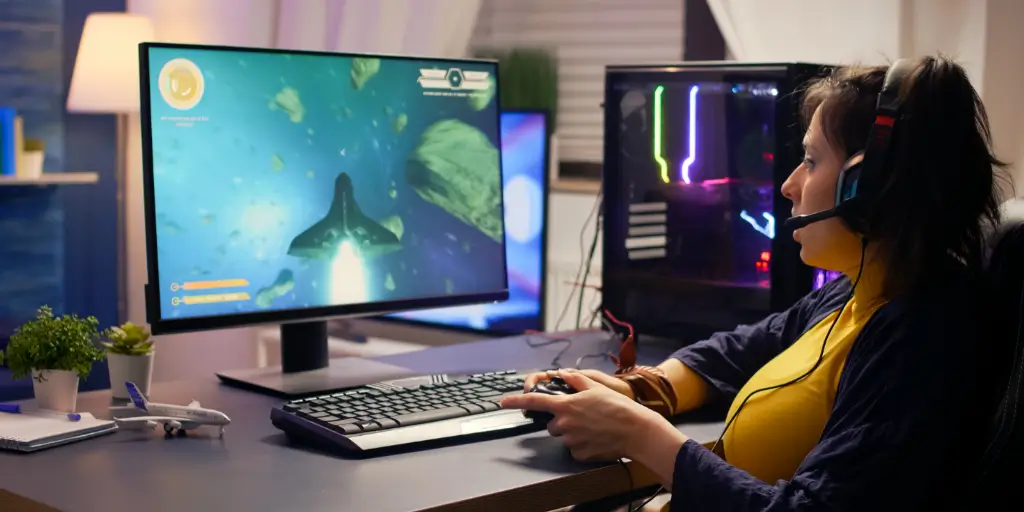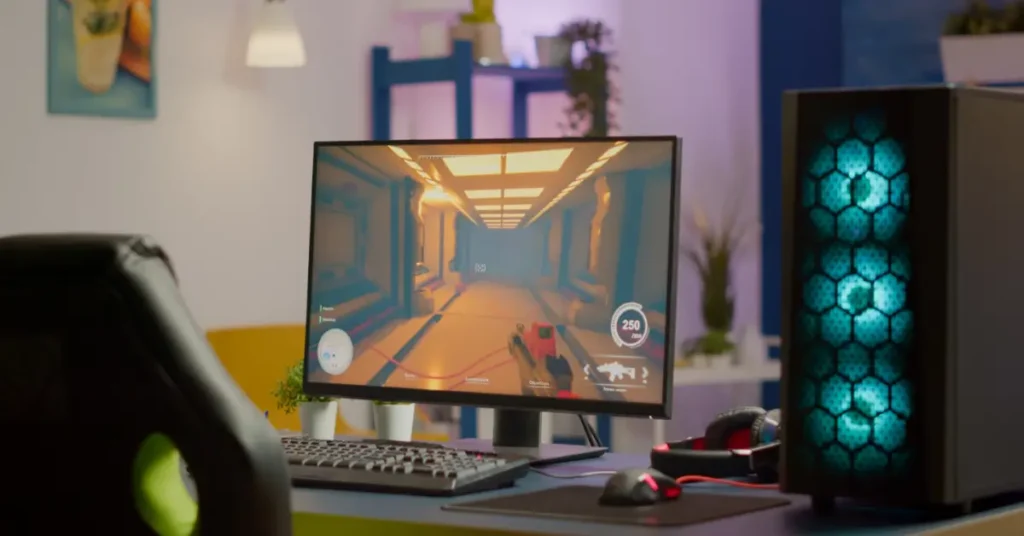Choosing the best laptop for programmers is a key decision that can impact your efficiency and comfort while coding. The right laptop can help optimize your workflow and provide you with the necessary tools to perform at your best. In this guide, we will explore the essential factors to consider when choosing the best laptop for programming to ensure you make the right decision.
1. Understanding Performance: What Makes the Best Laptop for Programmers Stand Out?
When selecting the best laptop for programming, performance is one of the most critical factors. To make the best choice, you must consider the laptop’s processor, RAM, and storage, as these will directly influence your coding speed and multitasking ability.
- Processor (CPU): The processor is at the heart of your laptop’s performance. For programming, Intel i5, i7, or AMD Ryzen 5, 7 are excellent choices. These processors deliver the necessary speed and power for compiling large projects, running virtual machines, and handling complex coding tasks.
- RAM: The amount of RAM you choose affects how many applications and processes your laptop can handle simultaneously. While 8GB of RAM is adequate for basic programming, 16GB or more is recommended for handling larger projects and multitasking without experiencing slowdowns.
- Storage: An SSD (Solid-State Drive) is essential for faster boot times and quick access to files and applications. Compared to HDDs, SSDs significantly improve performance, making them ideal for programming laptops.
2. Display Quality: Choosing the Right Screen for Programming Efficiency
A high-quality display is essential for programmers who spend long hours coding. When choosing the best laptop for programming, the resolution, size, and panel type of the display should be considered for comfort and productivity.
- Resolution: A Full HD (1920×1080) resolution is ideal for programming. However, if you need more detailed visuals, you may opt for a 4K screen. This provides sharper images but may impact battery life.
- Size: Laptops with 13 to 15-inch screens offer the perfect balance between portability and productivity. On the other hand, larger screens are less portable, while smaller ones limit multitasking space.
- Panel Type: Look for laptops with IPS (In-Plane Switching) panels. These displays offer better color accuracy and wider viewing angles, making them comfortable for long coding sessions.
3. Portability: Lightweight and Long-Lasting Laptops for Programmers
For programmers who travel often or work remotely, portability is an essential factor. A lightweight laptop with a long-lasting battery will ensure you can work efficiently on the go.
- Weight: Laptops weighing less than 4 pounds are ideal for portability. This allows you to carry your laptop easily, whether you’re commuting or traveling.
- Battery Life: Choose a laptop with a minimum of 8 hours of battery life. This ensures you can work through long coding sessions without worrying about finding a power outlet.
4. Keyboard and Trackpad: A Comfortable Typing Experience for Programmers
Since programmers spend hours typing, a comfortable keyboard is vital. For this reason, selecting a laptop with a responsive keyboard and trackpad is essential to enhance your workflow.
- Keyboard: A backlit keyboard is especially helpful when coding in low-light environments. Additionally, a well-designed keyboard reduces hand strain and provides a more comfortable typing experience.
- Trackpad: Ensure your laptop’s trackpad is precise and responsive. A high-quality trackpad allows smooth navigation, making it easier to work without interruptions.
5. Operating System: Choosing the Right OS for Your Programming Language
Your choice of operating system will depend on the languages and frameworks you use regularly. The best laptop for programming will be the one with the OS that supports your development environment.
- Windows: Windows is suitable for general-purpose development and game development. Moreover, it supports a variety of programming tools and languages, making it versatile for most developers.
- macOS: If you’re developing for Apple devices, macOS is essential. Besides that, macOS provides a Unix-like environment, ideal for web developers and command-line enthusiasts.
- Linux: Linux is a great option for developers who prefer open-source tools and need a customizable environment. Linux allows you to tailor your development experience to your specific needs.
6. Graphics: Do You Need a Dedicated GPU for Programming Tasks?
Most programming tasks do not require a dedicated GPU. However, if you are working with machine learning or game development, a dedicated GPU may improve your laptop’s performance.
- Dedicated GPU: If you choose a laptop with a dedicated GPU, such as an NVIDIA GTX or RTX series, you will be well-equipped to handle resource-intensive tasks like game development or AI programming.
7. Price: Balancing Cost and Features in Your Ideal Programming Laptop

When selecting the best laptop for programming, it’s important to balance cost and features. While premium models offer advanced specifications, a mid-range laptop can often provide all the features you need without overspending.
- Budget Considerations: Consider your budget when selecting your laptop. By focusing on the essential specifications, you can avoid unnecessary upgrades that don’t impact your programming experience.
8. Connectivity: Ensuring Smooth Integration with Other Devices
For programmers who need to connect their laptops to external devices, such as monitors, keyboards, or networking tools, connectivity options are crucial. The best laptop for programming should have sufficient ports and support for modern connectivity standards.
- USB Ports: Look for laptops that feature at least two USB 3.0 or USB-C ports. These are useful for transferring large files quickly and connecting essential peripherals.
- HDMI or DisplayPort: If you plan to use external monitors or projectors for presentations or multitasking, ensure your laptop has an HDMI or DisplayPort. This allows you to extend your workspace with ease.
- Wi-Fi and Bluetooth: Ensure the laptop has Wi-Fi 5 or Wi-Fi 6 capabilities for faster internet connections. Bluetooth support is also important for connecting wireless peripherals like headphones, mice, or keyboards.
9. Build Quality and Durability: A Laptop That Can Handle the Rigors of Daily Use
A durable and robust laptop is a great investment, especially for programmers who use their laptops daily. For programmers, durability plays a significant role in ensuring that the laptop can withstand everyday wear and tear, ensuring it remains functional for years.
- Material and Construction: Laptops made from high-quality materials like aluminum or magnesium alloy tend to be more durable and resistant to scratches and dents. These materials also provide a premium feel and better heat dissipation, ensuring that your laptop remains cool during intense coding sessions.
- Build Quality: Ensure the laptop is well-constructed and sturdy, especially the hinge and keyboard area. A poorly built laptop might feel flimsy and lead to issues over time, such as broken hinges or a loose keyboard.
10. Customer Support and Warranty: Ensuring Peace of Mind
When purchasing the best laptop for programming, it’s essential to consider the customer support and warranty offered by the manufacturer. Good customer service can make a huge difference when you encounter issues with your laptop.
- Warranty Coverage: Look for laptops that come with a minimum of one year of warranty, preferably with options for extended coverage. This ensures that if any hardware issues arise, you will be covered.
- Customer Support: Check reviews and user experiences related to the brand’s customer service. A company with excellent support will be more responsive and helpful when you need assistance.


